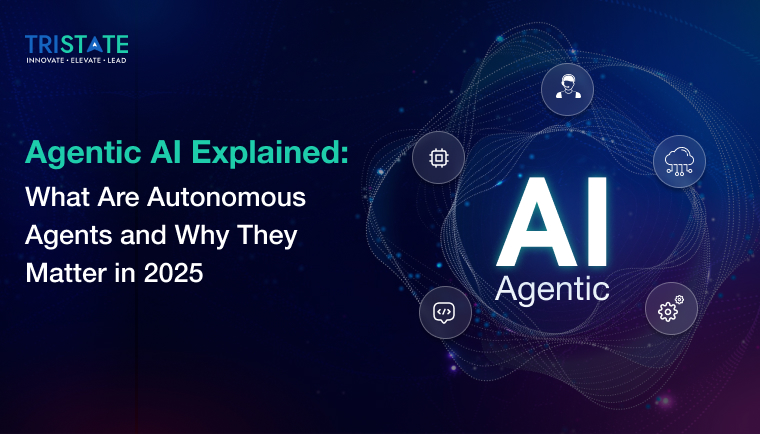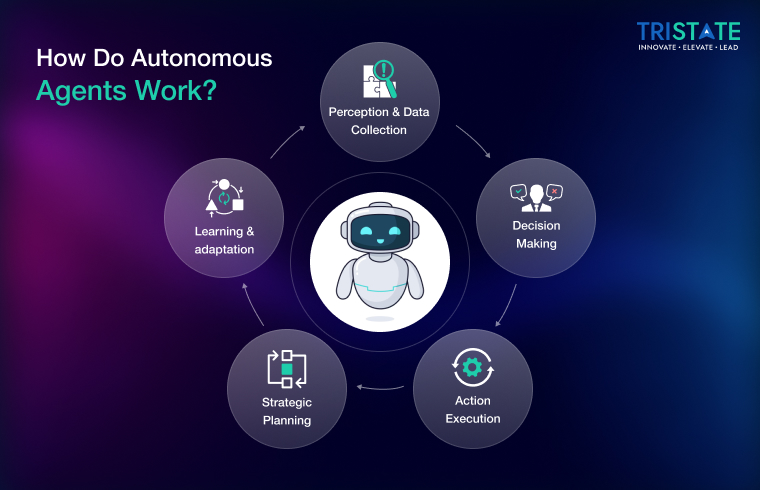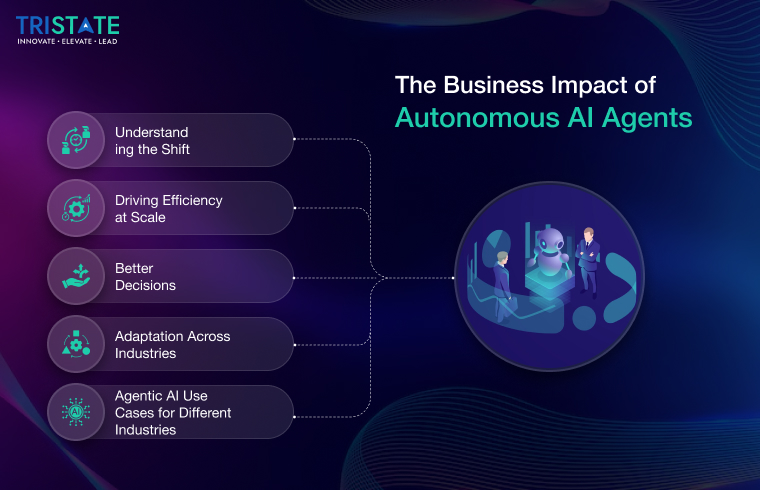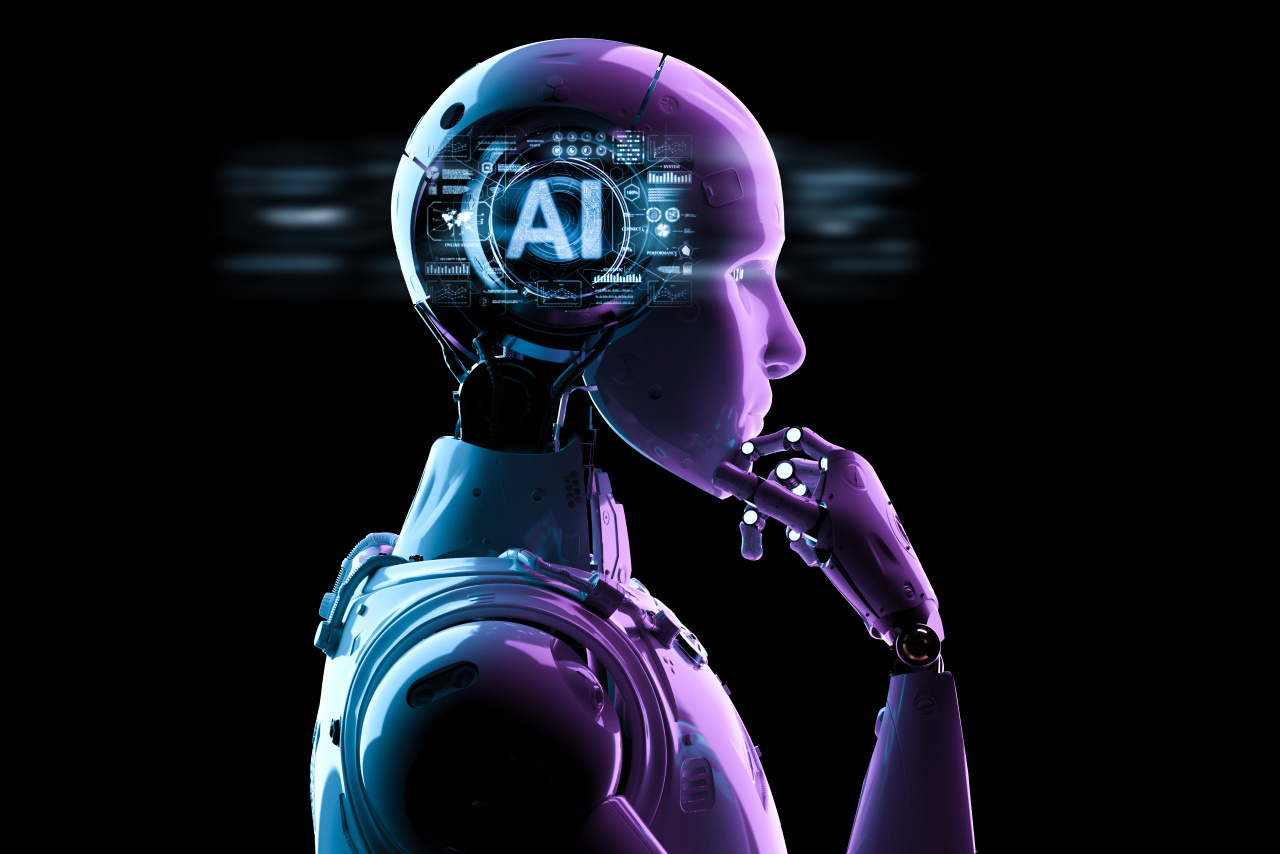
The rise of autonomous agents marks a turning point in how businesses operate today. Based on McKinsey’s estimates, generative AI could add between 2.6 and 4.4 trillion dollars to global GDP every year, and much of this growth will be driven by agentic systems. Gartner projects that by 2028, at least 15 percent of work decisions will be handled autonomously by agentic AI, up from zero in 2024.
The autonomous agent market size is also expected to reach 52.6 billion dollars by 2030, showing how quickly this technology is scaling. Just a few years ago we were introduced to ChatGPT, followed by Microsoft Copilot, and now agentic AI use cases are expanding rapidly across enterprises.
In this blog, we will explore what autonomous agents are, the key benefits of autonomous agents you must know in 2025, and the future trends of autonomous agents in 2025.
Table of Contents
The Journey We’ve Taken to Arrive at Agentic AI
The journey towards Agentic AI has continued to evolve with continued advances in automation. By utilizing specialized AI Consulting Services, businesses will understand how this journey developed and where autonomous agents are headed next.
1. Robotic Process Automation (RPA)
Automation started as Robotic Process Automation (RPA) that created software to do simple, repetitive tasks. However, RPA was successful for rule-based tasks but could not work on anything not within its programmed instructions.
2. Intelligent Process Automation (IPA)
Soon after came Intelligent Process Automation (IPA), where artificial intelligence was added to the mix. This allowed automation to go beyond rigid tasks and manage unstructured data while making decisions on its own in a limited way. Businesses saw the potential, and the demand for smarter solutions started to grow.
3. Agentic Process Automation (APA)
Today we are entering the era of Agentic Process Automation (APA), where the question is not just what are autonomous agents, but how far they can take us. These agents can learn, adapt, and complete workflows independently across multiple systems. This is a significant shift in how technology supports human work.
What is an Autonomous Agent?
When we ask What are Autonomous Agents, the answer is less complicated. An Autonomous Agent is an advanced artificial intelligence that can understand instructions, make its own decisions, carry them out without ongoing human intervention.
Autonomous agents can adapt to changing circumstances, unlike older programs that can only follow rules that are static to changing circumstances. This makes them ideal tools for customer service, sales, commerce, marketing, etc. Although they act autonomously, they will need us to tell them what their purpose is and provide the parameters of the task they are to perform.
How Do Autonomous Agents Work?

1. Perception and data collection
Autonomous agents begin by collecting data from multiple sources, whether it is customer conversations, purchase records, or external databases. This foundation allows them to understand the full context of a situation before taking action.
2. Decision making
With machine learning and natural language processing, these agents study the collected information, find patterns, and predict possible outcomes. This enables them to decide the most effective response or action in real time.
3. Strategic Planning
The journey towards Agentic AI has continued to evolve with continued advances in automation. By utilizing specialized AI Consulting Services, businesses will understand how this journey developed and where autonomous agents are headed next.
4. Action execution
Once a determination has been made, the agent executes the action effectively. It might be answering a customer question, placing an order, or providing an update in a timely fashion. Most actions reduce friction and optimize outcomes.
5. Learning and adaptation
The real strength of autonomous agents is their ability to continue learning. Incident to every activity, they improve processes, increase decision making, and increase their capabilities across industries.
This is central to the autonomous agent market size, breadth of agentic AI use cases, and growing agentic AI business impact that makes sense of autonomous agent significance in 2025.
The Business Impact of Autonomous AI Agents
The growing adoption of AI Development Services is transforming how companies create value. By exploring the business impact of autonomous agents, it becomes clear how these systems are redefining efficiency, decision-making, and industry-wide progress.

1. Understanding the Shift
The real power of autonomous agents is their capacity to keep learning. With each task assignment, they improve processes, enhance decision processes, and broaden their application across industries.
This is why they are central to the autonomous agent market, their vast array of agentic AI use cases, and the increasing agentic AI business impact which demonstrate why autonomous agents matter in 2025.
2. Driving Efficiency at Scale
In the year 2025, one of the primary advantages of autonomous agents you need to understand is their ability to work literally non-stop; agents are engaged in identifying patterns, then identifying problems and resolving those problems 24/7.
Organizations that have been using relatively large teams to perform repetitious work are migrating to autonomous agents to perform that work. This is not to say that people are replaced; rather, it allows teams to work on the meaningful high-value areas where creativity and human judgement are needed.
3. Better Decisions
The business value of agentic AI is also visible through how decisions are made by autonomous agents. Autonomous agents are utilizing complex collection and aggregation methodologies whereby they consume real-time data to identify infinitesimal changes that would be missed by the human eye and therefore missing opportunities to highlight risk, plan recovery, and take actions all without waiting for a human to take an approving action. In all industries, the degree of speed and accuracy simply changes everything.
4. Adaptation Across Industries
In 2025, it is worthwhile to benchmark where industries are using agents as this is a wide-ranging area. Industries from contact centers to healthcare to retail to cybersecurity have agents to reduce error, enhance safety, and increase speed of response.
The example above are some of the highest quality agentic AI and autonomous agent business use cases organizations can use today.

Agentic AI Use Cases for Different Industries
When we ask what autonomous agents are, the answer is not just about technology but about transformation. These systems are changing how businesses operate, grow, and compete. The rising autonomous agent market size is proof that organizations across industries are exploring them to achieve efficiency and accuracy.
With the support of advanced AI Agent Development Services, adoption is becoming more seamless. In this section, we will look at which industries use autonomous agents in 2025 and how the impact is becoming more visible every day.
1. Healthcare
In the healthcare domain, agentic AI examples include supporting doctors with diagnosis, managing patient records, and supervising treatments. These agents minimize the possibility for errors and enable quicker decision making for positive patient outcomes at the moment of care.
2. Retail and E-commerce
Retail operations will be recognizing why autonomous agents are valuable in 2025 and forward, because they are handling supply chain issues, personalizing customer experiences, and tracking inventory in real-time. Agents enable stores to operate well while keeping customers happy.
3. Finance and Banking
Financial services institutions are utilizing agents for fraud detection, handling compliance checks, and supporting customer service. The agentic AI industry impact in this case seems obvious, as agents have the ability to respond to enterprise risk in real-time while working on the order of millions of simultaneous transactions.
4. Manufacturing
In factories, agentic AI use cases include predictive maintenance, quality checks, and operational monitoring. Machines stay efficient while downtime is minimized, making operations more profitable and reliable.
5. Cybersecurity
Cybersecurity shows key benefits of autonomous agents you must know in 2025 because agents react immediately to threats, blocking issues before they spread. This keeps organizations safer than ever before.
6. Education
Even schools and universities are investigating forthcoming trends of autonomous agents in 2025 using smart tutors, personalized learning with ai systems, and automated administrative saved teachers a fair bit of time.
7. Public Services
Governments and public institutions are finding value in agents for traffic control, resource management, and digital citizen services. These applications show the broad and lasting agentic AI business impact beyond private companies.
TriState Technology on Future Trends of Autonomous Agents in 2025
The future of autonomous agents is evolving business as we know it, and 2025 is only going to make that happen faster. As the profile of the autonomous agents’ market size expands, companies are thinking about further use cases for agentic AI that can amplify efficiencies, reduce expenses, and ultimately enhance the customer experience. Picking up on these future trends of autonomous agents, many systems in 2025 will be learning quicker, adapting better, and providing bona fide business impact.
At TriState Technology, we are proud to be an Artificial Intelligence Development Company that empowers businesses to move forward with growing confidence. We provide businesses with the confidence to explore the most impactful agentic AI and tangible business outcomes, powered by our rich experience in delivering AI-enabled solutions.
We offer you the agentic AI business impact that gets you future-ready but remains planted in application and outcomes.




